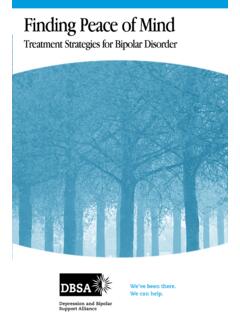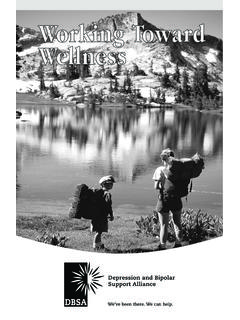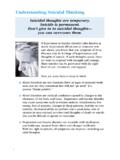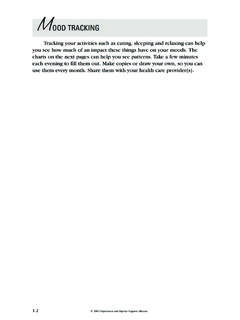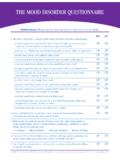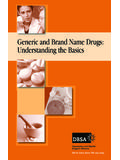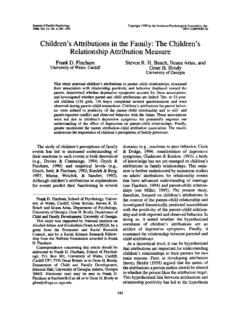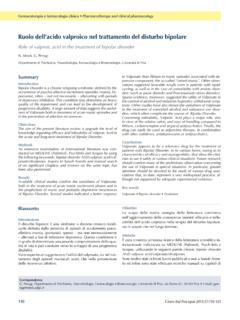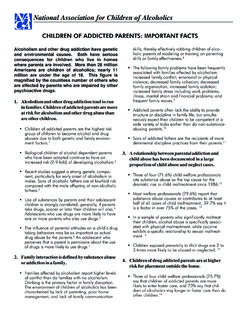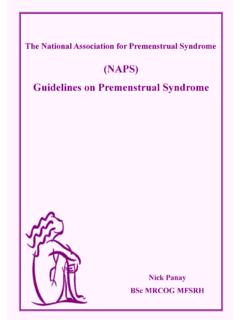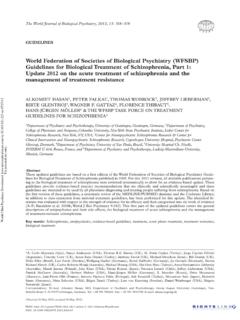Transcription of Guide to Depression and Bipolar Disorder - …
1 Guide toDepression andBipolar DisorderDepression and Bipolar Support Alliance (DBSA)Previously National Depressive and Manic-Depressive AssociationWe ve been there. We can are not aloneDepression and Bipolar Disorder (also known asmanic- Depression ) are both highly treatablemedical illnesses. So why do so few people getthe treatment they need? There are many reasons, butone of the main ones is the lack of accurate informationpatients and their families can understand. Many peoplethink that these illnesses will go away by themselves orthat gettinghelp is a sign of weakness or moral views are incorrect. That s why DBSA created booklet will discuss Depression and Bipolar disor-der, their symptoms and their treatments.
2 It will providegeneral guidance on the best resources and support. Itwill also inform you about DBSA, its mission and itsnationwide network of patient and family of DBSA s mission is to help you help yourself whether you have one of these illnesses or know some-one who does. Reading thisGuide to Depression andBipolar Disorderis one of the first steps on the road , its advisors and consultants do notendorse or recommend the use of anyspecific treatments or medications listedin this publication. For advice about spe-cific treatments or medications,individuals should consult their physi-cians and/or mental health 2 Bipolar Disorder6 Treatment 12 Support20 Resources26 DBSA Services28If you are thinking about death or suicide, go to a hospital emergency room, or contact a medical professional, clergymember, loved one or friend immediately!
3 Promoting mental health for all Americans will require scientific know-how but,even more importantly, a societalresolve that we will make the neededinvestment. The investment does notcall for massive budgets; rather, it callsfor the willingness of each of us to edu-cate ourselves and others about mentalhealth and mental illness, and thus toconfront the attitudes, fear, and misun-derstanding that remain as barriersbefore us. David Satcher, , States Surgeon GeneralfromMental Health: A Report of the Surgeon General, issued December 1999 DepressionIt s Not Just in Your HeadEveryone, at various timesin life, feels sad or blue. It s normal to feel sad onoccasion.
4 Sometimes this sadness comes from thingsthat happen in your life: you move to a different cityand leave behind friends, you lose your job or a lovedone dies. But what s the difference between normal feelings of sadness and the feelings caused by clinicaldepression?While it s normal for people to experience ups anddowns during their lives, those who have clinicaldepression experience specific symptoms daily for twoweeks or more, making it difficult to function at work,at school and in Depression is a treatablemedical illness markedby changes in mood, thought and behavior. That s whydoctors call it a mood this booklet, the term Depression is used to refer to clinical to Recognize DepressionDepression is not a character flaw or sign of personalweakness.
5 You can t make yourself well by trying to snap out of it or lighten up. And you can t catch itfrom someone else, although it can run in families. Tounderstand what Depression is, it s important to recog-nize the symptoms:32 Prolonged sadness or unex-plained crying spells Significant changes in appetiteand sleep patterns Irritability, anger, worry, agitation, anxiety Pessimism, indifference Loss of energy, persistent lethargy Unexplained aches and pains Feelings of guilt, worthlessnessand/or hopelessness Inability to concentrate, indecisiveness Inability to take pleasure in for-mer interests, social withdrawal Excessive consumption of alcoholor use of chemical substances Recurring thoughts of death or suicide If you or someone you know has thoughts ofdeath or suicide, contact a medical professional,clergy member.
6 Loved one or friend you experience five or more of these symptoms formore than two weeks or if any of these symptoms inter-fere with work or family activities, contact your doctorfor a thorough examination. This includes a completephysical exam and a review of your family s history of ill-ness. Do not try to diagnose yourself. Only a health careprofessional can determine if you have of DepressionIt is now believed that Depression is the sign of animbalance in brain chemicals called the direct causes of the illness are unclear, it isknown that body chemistry can bring on a depressivedisorder, due to the presence of another illness, alteredhealth habits, substance abuse or hormonal changes.
7 People who havemajor depressive Disorder havehad at least one major depressive episode five or moresymptoms for at least a two-week period. For some people, this Disorder is recurrent, which means they may experience episodes every so often: once a month,once a year or several times throughout their lives. Eachperson is different. Dysthymiais a chronic, moderate type of with dysthymia usually suffer from poor appetiteor overeating, insomnia or oversleeping, and low energyor fatigue. People with dysthymia are often largelyunaware that they have an illness because their function-ing is usually not greatly impaired. They go to work andmanage their lives, but are frequently irritable, alwayscomplaining about stress or not getting enough Gets Depression ?
8 People of all ages, races, ethnic groups, and social class-es have the illness. Although it can occur at any age, Depression frequently develops between the ages of 25and 44. More women experience Depression than DepressionMany women feel especially guilty about having depres-sive feelings at a time when they should be or areexpected to be happy. It s extremely important to talkabout postpartum feelings, as untreated postpartumdepression can affect the mother-child relationship and,in severe cases, may put the infant s and/or mother s lifeat in ten mothers meets the criteria for Depression inthe postpartum period. Although most of these womenhave only Depression , a rare few develop postpartumpsychosis symptoms of Depression and mania appear-ing in the postpartum period.
9 Both require immediatetreatment when symptoms and Other IllnessesDepression often co-exists with other mental or physicalillnesses. Substance abuse, anxiety disorders and eatingdisorders are particularly common mental conditionswhich may be worsened by Depression , and vice is currently being done into the relationshipbetween Depression and physical illnesses. Several recentstudies have noted that when co-existing Depression istreated, prognoses are substantially improved for condi-tions such as heart disease, AIDS, cancer, Parkinson sdisease and diabetes. It is important to tell your doctorabout all of the symptoms you are experiencing and allother illnesses for which you are receiving Good NewsOf all psychiatric illnesses, Depression is one of themost responsive to proper care, approx-imately 80 percent of people with major depressiondemonstrate significant improvement and lead produc-tive lives even those with severe Depression can behelped.
10 That s why it s crucial to learn about the symp - toms of Depression and act and DepressionAs many as one in 33 children and one in eight adoles-cents has Depression . If your child has five or moresymptoms for at least two weeks and it interferes withhis or her daily activities ( , going to school, playingwith friends), then your child may be clinicallydepressed. Other warning signs of childhood depressioninclude headaches, frequent absences from school,social isolation and reckless Depression is notcaused by poor may have many origins genetics, biochemistry and a variety of other factors. Fortunately, treatment forchildhood Depression is highly and the ElderlyDepression is not a normal part of aging.
